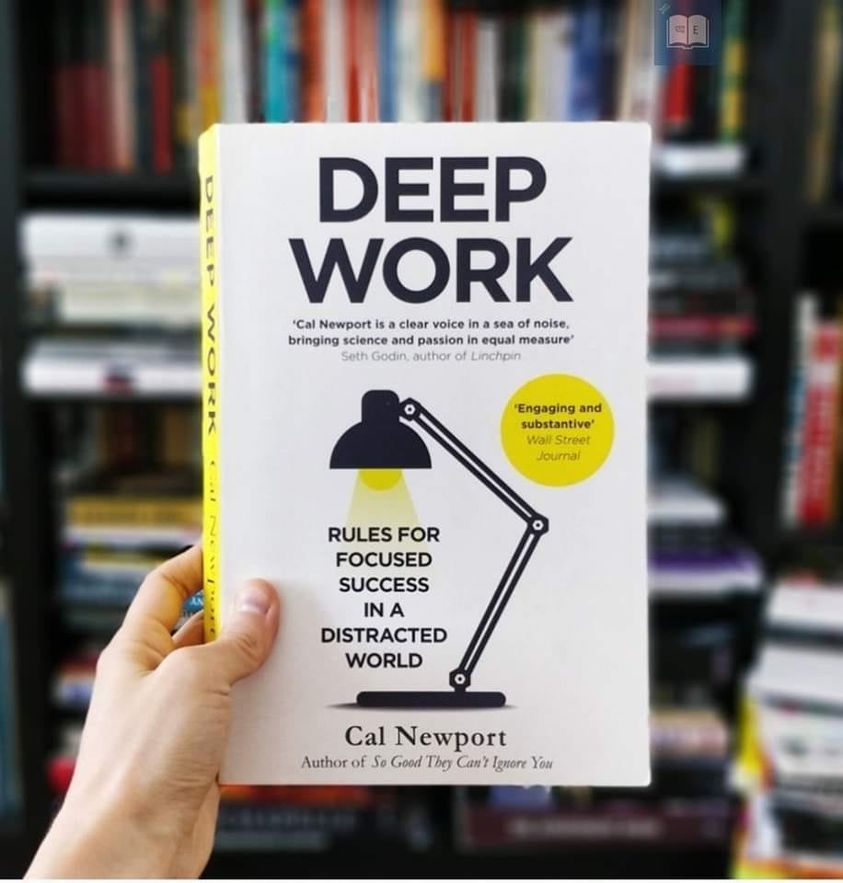In a world where constant connectivity and endless distractions have become the norm, the book “Deep Work” by Cal Newport stands as a beacon of clarity and practicality. With its seven powerful lessons, Newport provides a roadmap for achieving exceptional results through the practice of deep work. Let’s delve into these transformative insights that can reshape how we approach productivity and creativity.
Lesson 1: Embrace Deep Work for Exceptional Results
At the core of “Deep Work” lies the concept of deep work itself. Newport emphasizes the significance of cultivating a practice that goes beyond surface-level engagement. Deep work involves immersing oneself in cognitively demanding tasks that produce high-quality output. By prioritizing deep work, individuals can differentiate themselves from the sea of shallow distractions and create work that truly stands out.
Lesson 2: Eliminate Shallow Work
In a world of constant pings and notifications, Newport highlights the importance of reducing shallow work – those low-value tasks that don’t require intense focus. By optimizing processes, outsourcing when possible, and concentrating on high-impact activities, individuals can free up time for meaningful deep work that drives progress.
Lesson 3: Embrace Productive Discomfort
Newport’s insight challenges the allure of constant comfort. He advocates for embracing productive discomfort, recognizing that sustained focus and cognitive effort can be challenging, yet immensely rewarding. This discomfort is the crucible where growth and mastery are forged, leading to accomplishments beyond the ordinary.
Lesson 4: Cultivate Deep Work Rituals
Rituals play a pivotal role in transitioning the mind into a deep work mode. Newport recommends creating rituals that trigger the brain to enter a focused state. These rituals can range from setting up a specific workspace to disconnecting from distractions and setting clear objectives for each deep work session.
Lesson 5: Embrace Time Blocking
Time blocking is a powerful strategy to ensure deep work becomes a consistent practice. Newport advocates for proactive scheduling, designating specific time blocks solely for deep work. By treating these blocks as sacred and non-negotiable, individuals can harness their peak cognitive abilities during dedicated work periods.
Lesson 6: Leverage Digital Minimalism
In an age of digital overload, Newport introduces the concept of digital minimalism. This philosophy encourages individuals to curate their digital tools deliberately, minimizing distractions and regaining control over their online activities. By adopting only essential applications and reducing mindless browsing, individuals create space for meaningful deep work.
Lesson 7: Prioritize Rest and Downtime
Even as “Deep Work” advocates for intense focus, Newport equally underscores the importance of rest and downtime. Sustained productivity requires mental rejuvenation. Prioritizing restorative activities and carving out periods of rest enhances cognitive resources, fosters creativity, and ensures a sustainable cycle of productivity.
“Deep Work” isn’t just a book; it’s a guiding philosophy that calls on us to transcend the noise and distractions that permeate our lives. By applying these seven lessons, individuals can unlock their potential for exceptional results, creating work that is not only valuable but also deeply satisfying. It’s a call to action that can transform the way we work, think, and ultimately lead us to a more fulfilling and impactful life.














